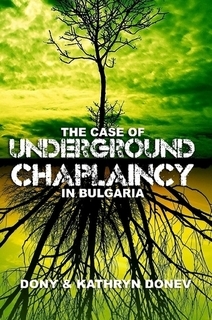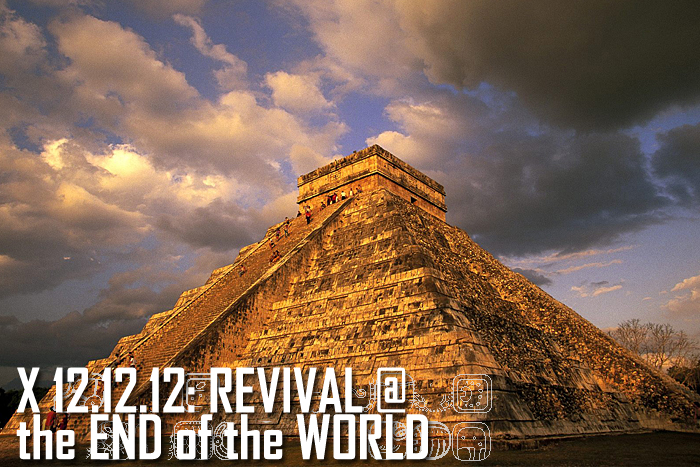Bulgarian Chaplaincy Association Ministry Projections for 2013
 1. Continuing to increase awareness of the ministry efforts of the Bulgarian Chaplaincy Association on local, regional and national levels.
1. Continuing to increase awareness of the ministry efforts of the Bulgarian Chaplaincy Association on local, regional and national levels.
2. Publish the current edition of the underground chaplaincy ministry manual in Bulgarian including the most recent Code of
3. Ethics for Chaplains approved by the Association.
4. Launch second satellite extension of the Master’s in Chaplaincy Ministry Program in Northeast Region of Bulgaria near Black Sea.
5. Lawful admittance of Protestant Chaplains in the military bringing chaplaincy above ground.
6. Establish a network of support groups to provide the much needed re-integration care of military personnel after deployment.
7. Provide spiritual guidance and support to its members who continue to fulfill their calling of chaplaincy work regardless of the persecution endured on a daily basis.
8. Seek and create opportunities as an organization to enhance the quality of chaplaincy care via research and continuous education.
About the Bible
![61ChzONSqAL._SY344_PJlook-inside-v2,TopRight,1,0_SH20_BO1,204,203,200_[2]](https://cupandcross.com/wp-content/uploads/2013/12/61ChzONSqAL._SY344_PJlook-inside-v2TopRight10_SH20_BO1204203200_2.jpg) About the Bible (3a Bibliata) is a publication series of some 100 research articles written for the Bulgarian Evangelical Newspaper between 2004-2010. They include topics as paleography, manuscript collage, textual criticism and much more. The historical outline explores the translation of the Bible in various languages from its conception to present day and early Bible versions (Coptic, Armenian, Georgian and others). Special attention is paid to the early Slavic and Gothic manuscripts. Then, the timeline continues with the Bibles of the Protestant Reformation from Hus, Wycliffe, Luther, Zwingli, Geneva all the way to the King James Bible of 1611. The last part of the book includes a detailed exegetical and text-critical exploration of the Bulgarian Bible versions including early translations of the 19th century, the Constantinople Bible, Revised Protestant editions of 1924 and 1940 and all available modern revisions (Bible Society, Veren, WBTC, Bible League) and the New Bulgarian Translation of the Bible (2007-2013).
About the Bible (3a Bibliata) is a publication series of some 100 research articles written for the Bulgarian Evangelical Newspaper between 2004-2010. They include topics as paleography, manuscript collage, textual criticism and much more. The historical outline explores the translation of the Bible in various languages from its conception to present day and early Bible versions (Coptic, Armenian, Georgian and others). Special attention is paid to the early Slavic and Gothic manuscripts. Then, the timeline continues with the Bibles of the Protestant Reformation from Hus, Wycliffe, Luther, Zwingli, Geneva all the way to the King James Bible of 1611. The last part of the book includes a detailed exegetical and text-critical exploration of the Bulgarian Bible versions including early translations of the 19th century, the Constantinople Bible, Revised Protestant editions of 1924 and 1940 and all available modern revisions (Bible Society, Veren, WBTC, Bible League) and the New Bulgarian Translation of the Bible (2007-2013).
MEN WANTED
 Ernest Shackleton’s 1907 ad in London’s Times, recruiting a crew to sail with him on his exploration of the South Pole:
Ernest Shackleton’s 1907 ad in London’s Times, recruiting a crew to sail with him on his exploration of the South Pole:
Wanted. Men for hazardous journey. Low wages. Bitter cold. Long hours of complete darkness. Safe return doubtful. Honor and recognition in the event of success.
Sounds like another ad:
And he said to all, “If anyone would come after me, let him deny himself and take up his cross daily and follow me. For whoever would save his life will lose it, but whoever loses his life for my sake will save it. Luke 9:23-24 NIV
2013
New Books Published in 2012
Pentecostal Primitivism Preserved
In attempt to answer the present ecclesial predicaments, this work suggests a way of remembering and returning to the past. Judging from his own Eastern Pentecostal Tradition and personal salvific experience, the author calls the Christian Church to neo-primitivism expressed in the rediscovering and reclaiming of the basic order of the Primitive Church of the first century. Dr.Donev proposes a new understanding of the Pentecostal experience expressed in power, prayer and praxis. Furthermore, reclaiming of the original experience is the answer for the church of the 21st century expressed in discipleship after Christ.
Looking Over the Wall
This book is the result of over a decade of research and personal experiences of living in Bulgaria for the past seven years. It embodies documents, articles, personal interviews and essays dealing with psychological explorations of communist and post communist Bulgaria. Along with a historical overview of Bulgaria, the author presents the development of psychotherapy throughout the country and addresses future concerns for the state of counseling within a post communist context. Furthermore, the author examines the Pentecostal experience of the Bulgarian evangelical believer drawing on a paper presented at the 36th annual Society of Pentecostal Studies Conference.
Bulgarian Churches in North America
Bulgarian Churches in North America results from a comprehensive dissertation work on emerging Bulgarian American congregations. The book incorporates some twenty years of research, which the author began while involved with the establishment of the first Bulgarian Church of God in North America initially located in the city of Chicago. The work presents an overview of the historical presuppositions and immigrant dynamics associated with Bulgarian churches is offered to enlighten the current problem of ministry. Next, a detailed contextual analysis describes the churches participating in the project. The work concludes with a series of prognoses of the explored movement of evangelical churches, various considerations and an A-to-Z church planting proposal to serve as a paradigm for ministry.
Cooking Traditions of Bulgaria
Bulgarian cuisine is distinct, yet eclectic at the same time with Mediterranean influence and flavors of its surrounding countries. Bulgaria borders the Black Sea, between Romania and Turkey. Greece is also a neighbor, along with Serbia and Macedonia to the west. This cookbook features 50 personal, but authentic recipes in attempts to further the tradition of keeping alive century old recipes of Bulgarian cuisine. I have tried to keep the recipes as authentic as possible with using American based ingredients and with every dish, dessert or drink there is a story to be told…
The Life and Ministry of Rev. Ivan Voronaev
This book tells the story of the life and ministry of the family who brought the message of Azusa Street to Eastern Europe and Russia. The research has taken close to a decade to complete. It started with a brief article on the beginning of the Pentecostal movement in Bulgaria, where unfortunately most church archives were destroyed during Communism. Consecutively, the research led my wife and I on a long journey from the Southern Baptist Historical Library and Archives in Nashville, to the Assemblies of God headquarters in Springfield and the Graduate Theological Union at Berkeley. Both papers included in this book were presented at two consecutive meetings of the Society for Pentecostal Studies in Minneapolis (2010) and Memphis (2011).
The Case of Underground Chaplaincy in Bulgaria
This book embodies documents, articles and essays dealing with the rediscovering and reestablishing of chaplaincy ministry in Bulgaria after the fall of the Berlin Wall in 1989, including the envisioning and establishment of the Bulgarian Chaplaincy Association and it’s proposal for the reestablishment of chaplaincy within the Bulgarian Armed Forces submitted to NATO’s Manfred Wörner Foundation in 2006, which subsequently led to the envisioning and establishment of the Master’s Program in Chaplaincy Ministry via the Bulgarian Evangelical Theological Institute and New Bulgarian University of Bulgaria in 2009.
It is our sincere prayer that after all said and done chaplaincy is finally endorsed and established in the Bulgarian Arm Forces.
MATTHEW: A New Bulgarian Translation
In 2007, we set course with a pilot edition of the new translation including the Gospel of John, which was printed for Christmas. Our team continued with a full edition of the Johannine works, which included The Gospel of John, Epistles and Apocalypse, published for Easter 2008. In 2009, we presented a partial methodology behind the translation at the Logos Software’s annual BibleTech conference in Seattle and at the 2010 BibleTech in San Jose, our team was able to show in an actual work setting the software used to prepare the Bulgarian interlinear text to the Nestle-Aland critical edition of the New Testament. Finally, we were able to publish in print the complete translation of the Gospel of Matthew for Christmas 2010. The printing of Mark and the Lukan Corpus are scheduled respectively for Easter and Christmas of 2011.
MARK: A New Bulgarian Translation
The new literal translation of the Gospel According to Mark hits the Marketplace on Monday via bookstores across Bulgaria as annual book fairs are usually held during the spring season. This time has been long waited by theologians and Bible scholars as this is the first series of literal translations from Nestle-Aland in the Bulgarian vernacular. It is the third volume our ministry has put out with the complete Johannine works in (2008) and the Gospel according to Matthew (2010). Final editorial revisions before printing are being made on the last of the volumes, which includes Luke and Acts, with plans to make it available to the general public by the end of the year.
Merry Christmas
Two Bulgarian Bibles Printed in 2012
 We are proud to announce the publication of two Bulgarian Bibles in 2012. The first is the original Bulgarian translation of 1871 known as the Constantinople Bible – perhaps one of the best translation works by the American Bible Society ever. The digital remake and its new publication in paper in 2012 took our team some seven years of work.
We are proud to announce the publication of two Bulgarian Bibles in 2012. The first is the original Bulgarian translation of 1871 known as the Constantinople Bible – perhaps one of the best translation works by the American Bible Society ever. The digital remake and its new publication in paper in 2012 took our team some seven years of work.
 The second one is the 1940 Revised Bulgarian Bible initiated in 1920-24 by the British and Foreign Bible Society. It is perhaps the most read Bulgarian Bible of all times. While a number of new versions and revisions have attempted to replace it, our team has preserved the original text and made it available to Bulgarian readers abroad.
The second one is the 1940 Revised Bulgarian Bible initiated in 1920-24 by the British and Foreign Bible Society. It is perhaps the most read Bulgarian Bible of all times. While a number of new versions and revisions have attempted to replace it, our team has preserved the original text and made it available to Bulgarian readers abroad.
Both translation have been part of the Bible Works software since version 7 and its online equivalent YouVersion.com (now Bible.com) for several years now. We are also appreciative of the fact that almost immediately after the publication, both Bulgarian Bibles were picked up for distribution by Amazon.com and their sub-stores internationally, thus making them available to Bulgarian readers in all countries where Amazon is present, which covers virtually every region with Bulgarian population outside of Bulgaria.
End of Days Revival Series
 Cup & Cross Ministries International is presenting a five part special teaching series on the End of Days Revival starting Monday December 17, 2012 at 8 PM. Services will be held every day of the week through 12.21.12 and then starting again on Sunday December 23 with our 2012 Christmas service. Please join us in prayer as we will be ministering extensively while broadcasting the services LIVE to our audience abroad.
Cup & Cross Ministries International is presenting a five part special teaching series on the End of Days Revival starting Monday December 17, 2012 at 8 PM. Services will be held every day of the week through 12.21.12 and then starting again on Sunday December 23 with our 2012 Christmas service. Please join us in prayer as we will be ministering extensively while broadcasting the services LIVE to our audience abroad.


















